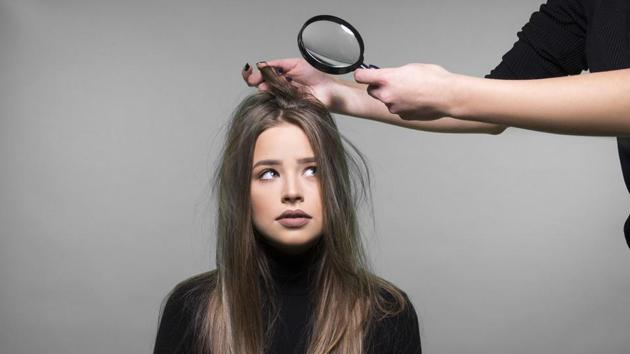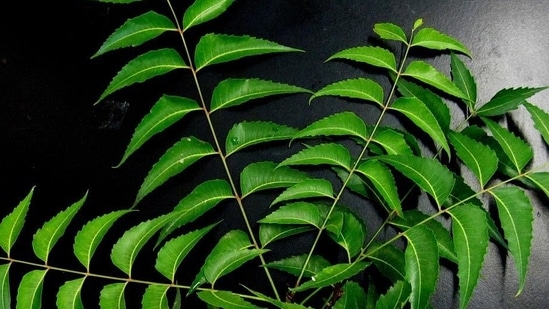
Dandruff shampoo not working? It could be scalp psoriasis! Know clear signs
7 months ago | 66 Views
If you experience a flaky, red and itchy scalp, it is natural to assume it is dandruff but it could actually be a sign of scalp psoriasis. Though both conditions can cause a flaky scalp, they differ in terms of their causes, symptoms and treatments.
It is important to understand the difference to find the right approach to managing your scalp health. For those struggling with severe flaking and itching, consulting a scalp psoriasis specialist can be crucial for a proper diagnosis and effective treatment plan.
What Causes Scalp Psoriasis?
In an interview with HT Lifestyle, Dr BL Jangid, Dermatologist and Hair Transplant Surgeon at SkinQure Clinic in New Delhi's Saket, explained, “Scalp psoriasis is an autoimmune inflammatory disorder in which the immune system mistakenly attacks healthy skin cells, leading to rapid skin cell multiplication. This overproduction of skin cells results in itchy red patches covered with silvery-white scales. On the other hand, dandruff is typically caused by an overgrowth of yeast or a reaction to hair care products and is not driven by an immune issue.”
He elaborated, “For people dealing with scalp discomfort and severe flakiness, scalp psoriasis removal techniques are more complex than those for simple dandruff removal. Scalp psoriasis also has a strong genetic component. You are more likely to develop this skin condition if you have a family history of psoriasis. Consulting a scalp psoriasis specialist can help you explore the right treatment options.”
How to Differentiate Between Scalp Psoriasis and Dandruff
Dr BL Jangid revealed -
- Scalp psoriasis appears as red, inflamed patches covered with thick, silvery scales, while dandruff typically appears as small, white or yellowish flakes.
- In scalp psoriasis, the skin may look thicker with a white or silver sheen, whereas dandruff flakes are finer and more powdery.
- Both conditions may cause itching, but scalp psoriasis may also lead to a burning or tingling sensation on the scalp.
- Scalp psoriasis can occasionally lead to hair thinning or temporary hair loss, which is much less common with dandruff.

Adding to the list of tips to differentiate between scalp psoriasis, Dr Shivani Yadav (MBBS, MD DVL), Dermatologist and Founder of Skin Avenue Dermatology Clinic in Gurugram, pointed out -
1. Underlying Cause
- Scalp Psoriasis: This is an autoimmune condition where the immune system mistakenly targets healthy skin cells, speeding up their growth cycle. This rapid turnover results in thick, scaly patches forming on the scalp.
- Dandruff: Dandruff is commonly linked to an overgrowth of the Malassezia fungus on the scalp. Other factors like an oily scalp, irritation, or sensitivity to hair products can also contribute.
2. Appearance
- Scalp Psoriasis: Thick, red patches of skin covered with silvery-white scales. These patches are well-defined and can extend beyond the scalp to areas like the forehead, neck, or behind the ears.
- Dandruff: Flaky, white or yellowish scales that are generally loose and easy to brush away. The flakes are typically smaller and less inflamed than those caused by psoriasis.
3. Location
- Scalp Psoriasis: It can cover the entire scalp and often extends to other parts of the body, such as the elbows, knees, or back.
- Dandruff: Limited to the scalp, mainly around the top of the head and hairline. It doesn’t usually spread beyond the scalp.
4. Itching and Irritation
- Scalp Psoriasis: The itching is often intense and can be accompanied by burning or pain, sometimes severe enough to disrupt daily life.
- Dandruff: Usually mild, with some itching, but it rarely causes significant discomfort.
5. Severity
- Scalp Psoriasis: Severity can vary from mild to extreme, with flare-ups that can worsen symptoms. In severe cases, the constant scratching and inflammation may lead to hair loss.
- Dandruff: Generally mild and considered a cosmetic issue rather than a medical concern. It rarely causes permanent damage or hair loss.
6. Triggers
- Scalp Psoriasis: Common triggers include stress, infections, medications, skin trauma, cold weather and alcohol.
- Dandruff: Often triggered by an oily scalp, poor hygiene, dry skin, stress, or overgrowth of Malassezia yeast.
Treatment Options for Scalp Psoriasis
According to Dr BL Jangid, there is no way to prevent scalp psoriasis but if you are experiencing symptoms, it is essential to meet with a board-certified dermatologist for an accurate diagnosis and scalp psoriasis treatment. Here are some common treatments he recommended -
- Topical Treatments: Medications like corticosteroid creams, medicated shampoos, and ointments are often the first line of scalp psoriasis treatment to reduce inflammation.
- Phototherapy: For cases where topical treatments aren’t enough, controlled exposure to ultraviolet (UV) light, under medical supervision, can be an effective option for slowing the rapid growth of skin cells.
- Systemic Medications: In severe cases where topical treatments and phototherapy do not provide sufficient relief, oral or injectable medications may be prescribed to regulate the immune system and manage symptoms of scalp psoriasis.
- Lifestyle Modifications: Maintaining good scalp hygiene, managing stress, avoiding harsh hair products, and following a healthy diet can significantly help in controlling scalp psoriasis symptoms.

Dandruff treatment often involves over-the-counter shampoos that help in dandruff removal. While these treatments may ease discomfort, persistent dandruff may need a specialised approach from a dermatologist.
Bringing her expertise to the same, Dr Shivani Yadav said that scalp psoriasis typically requires prescription treatments, including:
- Topical corticosteroids
- Vitamin D analogues
- Coal tar shampoos
- Biologics for severe cases
- Phototherapy (UV light therapy)
As for dandruff, Dr Shivani Yadav said, it be treated with over-the-counter (OTC) solutions, such as:
- Anti-dandruff shampoos with zinc pyrithione, ketoconazole, or selenium sulfide
- Maintaining proper scalp hygiene
- Limiting the use of hair products that may irritate the scalp
Dr Shivani Yadav said, “While scalp psoriasis and dandruff share some similarities, they are very different conditions. Receiving an accurate diagnosis from a medical professional is critical to identifying the exact cause and finding the right treatment. If left untreated, scalp psoriasis can lead to further complications, while untreated dandruff may worsen over time. Be sure to consult a scalp psoriasis specialist or dermatologist for proper dandruff treatment.”
8. Chronicity
- Scalp Psoriasis: A lifelong condition that requires ongoing management, with alternating periods of flare-ups and remission.
- Dandruff: A recurring condition, but generally easier to manage and less persistent compared to scalp psoriasis.
Dandruff is more easily controlled with OTC treatments. Psoriasis causes an itchy skin condition, can come and go throughout your life. It’s related to an overactive immune response and isn’t contagious. If you have skin changes that aren’t going away, talk to your dermatologist for a proper diagnosis and tailored treatment plan.
Read Also: Chemotherapy: Your guide to understanding this cancer treatment and side effects
HOW DID YOU LIKE THIS ARTICLE? CHOOSE YOUR EMOTICON !





















